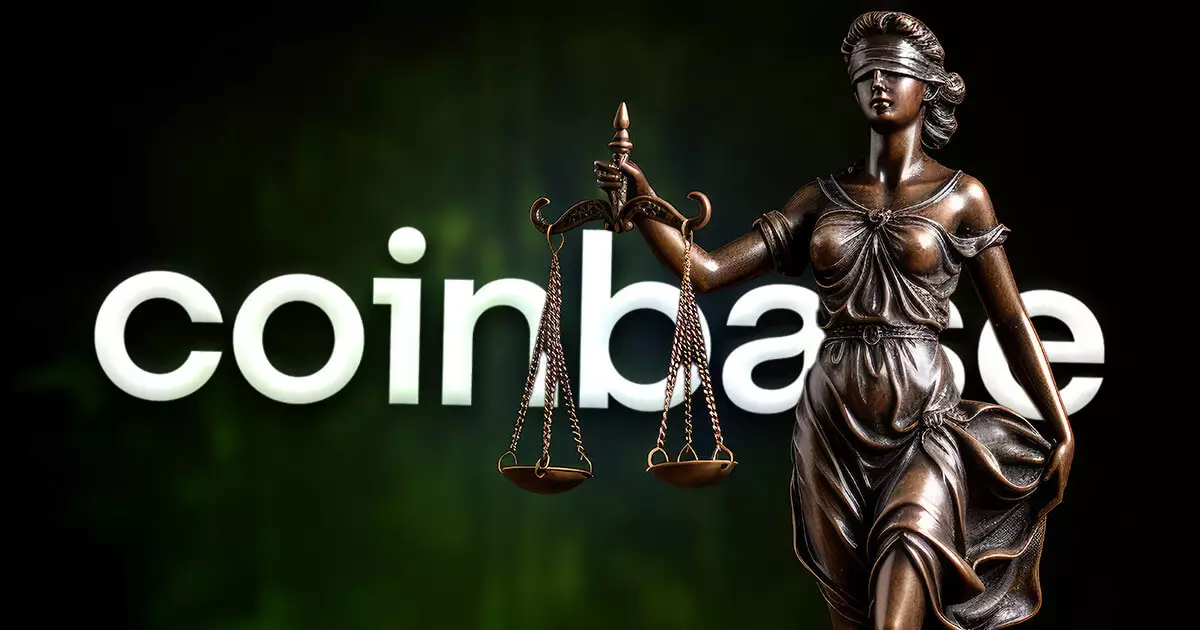In a significant legal confrontation poised to shake the foundations of the cryptocurrency market, BiT Global has initiated a lawsuit against Coinbase, the flagship cryptocurrency exchange in the United States. This lawsuit, filed on December 13, elucidates a contention that has ripple effects transcending mere market maneuvering—it taps into the intricate landscape of competition, market manipulation, and the burgeoning world of wrapped cryptocurrencies. Core to BiT Global’s argument is the assertion that Coinbase has engaged in antitrust violations by removing wrapped Bitcoin (WBTC) from its platform, thereby favoring its own wrapped Bitcoin variant, referred to as Coinbase Wrapped Bitcoin (cbBTC).
BiT Global has leveled serious allegations against Coinbase, suggesting that the exchange’s actions extend beyond standard operating procedures into the realm of anti-competitive practices. The crux of their complaint centers on the idea that Coinbase exercised its dominant position to suppress a key competitor—WBTC. This exclusion, as per BiT Global, is not merely a strategic business decision but rather a calculated move aimed at consolidating control over the growing wrapped Bitcoin market. The lawsuit contends that Coinbase’s strategies are not simply about maintaining quality listing standards but reflect a deeper desire for increased transaction revenues. The potential future imposition of transaction fees on cbBTC underscores fears that Coinbase is not merely safeguarding market integrity but manipulating it for profit.
Moreover, BiT Global challenges Coinbase’s narrative that the removal of WBTC stemmed from adherence to any quality-based listing standards. This is highlighted by Coinbase’s inclusion of less serious tokens like PEPE and MOG, suggesting that the decision to delist WBTC was not driven by concerns for quality but by an intent to undermine competition. Such claims pose questions regarding the integrity of Coinbase’s market practices and suggest potential misuse of its dominant position to inhibit fair competition.
The health and future of decentralized finance (DeFi) hang in the balance when examining the consequences of this legal dispute. BiT Global seeks not only to reinstate WBTC on Coinbase but also to challenge the broader trend towards centralization in the cryptocurrency space. By rallying against practices that might stifle competition, the firm aims to safeguard innovation in an industry that thrives on decentralized principles.
This lawsuit is emblematic of a larger battle for the soul of cryptocurrency—whether it will remain an open and inclusive marketplace or devolve into a centralized model dominated by a handful of powerful players. The stakes are particularly high considering that, despite WBTC’s formidable market capitalization, fluctuations in its token supply and ongoing challenges could threaten its future viability. The outcome of BiT Global’s lawsuit may thus serve as a litmus test for the health of decentralized innovations and the potential for competing wrapped assets.
Interestingly, the delisting of WBTC by Coinbase comes amidst a tumultuous year for wrapped assets. Following a shift in custodianship from BitGo to multiple entities—including BiT Global—concerns have emerged regarding the stability and governance of WBTC. Amid heightened scrutiny, other industry players like Coinbase have launched their own products, with cbBTC quickly ascending to become a significant alternative in the market.
As of now, the market dynamics underscore a rapid shift; cbBTC has seen robust adoption, amassing a market cap of approximately $2 billion since its launch on the Ethereum network in September. This illustrates not only the appetite for wrapped Bitcoin products but also how swiftly new entrants can capture market sentiment, further complicating the competitive landscape.
As this lawsuit unfolds, both BiT Global and Coinbase stand at a critical juncture that could redefine the future of competition within the crypto market. The legal resolution of this dispute will likely impact not only the involved parties but also the broader community of developers, investors, and users who rely on these digital assets for innovation and financial services. As the industry watches closely, the case serves not only as a confrontation between two entities but as a flashpoint for the ongoing dialogue about competition, decentralization, and the very principles that underpin the crypto space.















